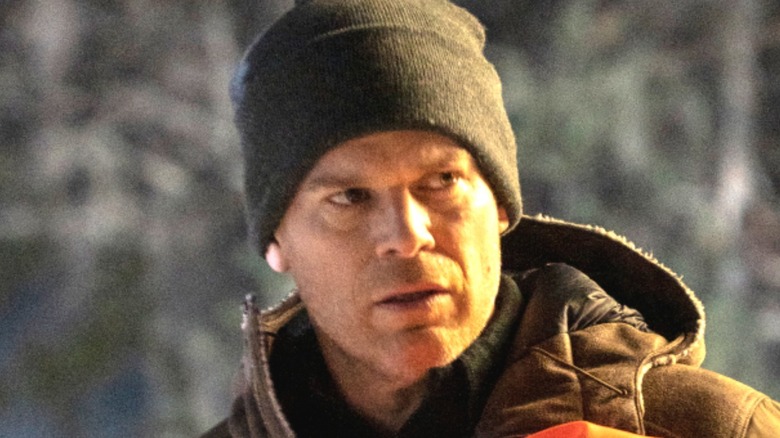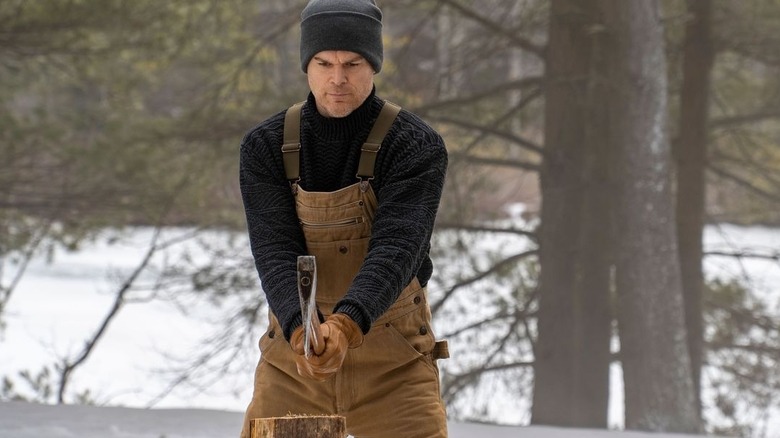Why The White Stag In Dexter New Blood Means More Than You Think
After a long hiatus following a very divisive original series finale, Dexter Morgan (Michael C. Hall) has returned to the screen in "Dexter: New Blood." The revival, which is now available to stream, catches up with the beloved serial killer of other serial killers in the present day. This time around, he's swapped the beaches and sunshine of Miami for the small town life in upstate New York, living under the alias of Jim Lindsay (as a tribute to Jeff Lindsay, the author of the original "Dexter" novels on which the series is based) and trying to escape his past.
As the title suggests, "Dexter: New Blood" is about starting over in many ways. However, as the old saying goes, old habits die hard — and that's certainly true for the man once dubbed "The Bay Harbor Butcher." The revival sees the titular antihero doing his best to stay on the right side of the law, but it doesn't take long for his bloodlust to be rekindled — all thanks to a hunting trip involving a white stag.
The symbolism of the white stag in Dexter: New Blood
Dexter has never been proud of (or comfortable with) the fact he's a twisted vigilante. It's a compulsion that's connected to the very essence of his being, but his character's path has been one of trying to find redemption in his own demented way. That's why it's so easy for the audience to root for him. Unfortunately for guys like Dexter, there is no such thing as a true happily ever after. The monster he tries to keep at bay is always clawing to be unleashed.
In the first episode of "Dexter: New Blood," the titular protagonist sets out to hunt and kill a white stag. However, whenever the opportunity to pull the trigger presents itself, the killer can't bring himself to do it. He then goes on to bond with the stag, only for Matt Caldwell to show up and kill it. Dexter is covered in stag blood as a result, triggering the return of the mass murderer we all know and love.
Clearly, the white stag's symbolism is associated with innocence and purity. Dexter can't bring himself to hunt it for these reasons, indicating that he's developed a newfound appreciation for preserving lives. But the death of the animal reawakens Dexter's inner beast, compelling him to return to his old ways and presumably abandon the hard work he put into his own personal growth.

